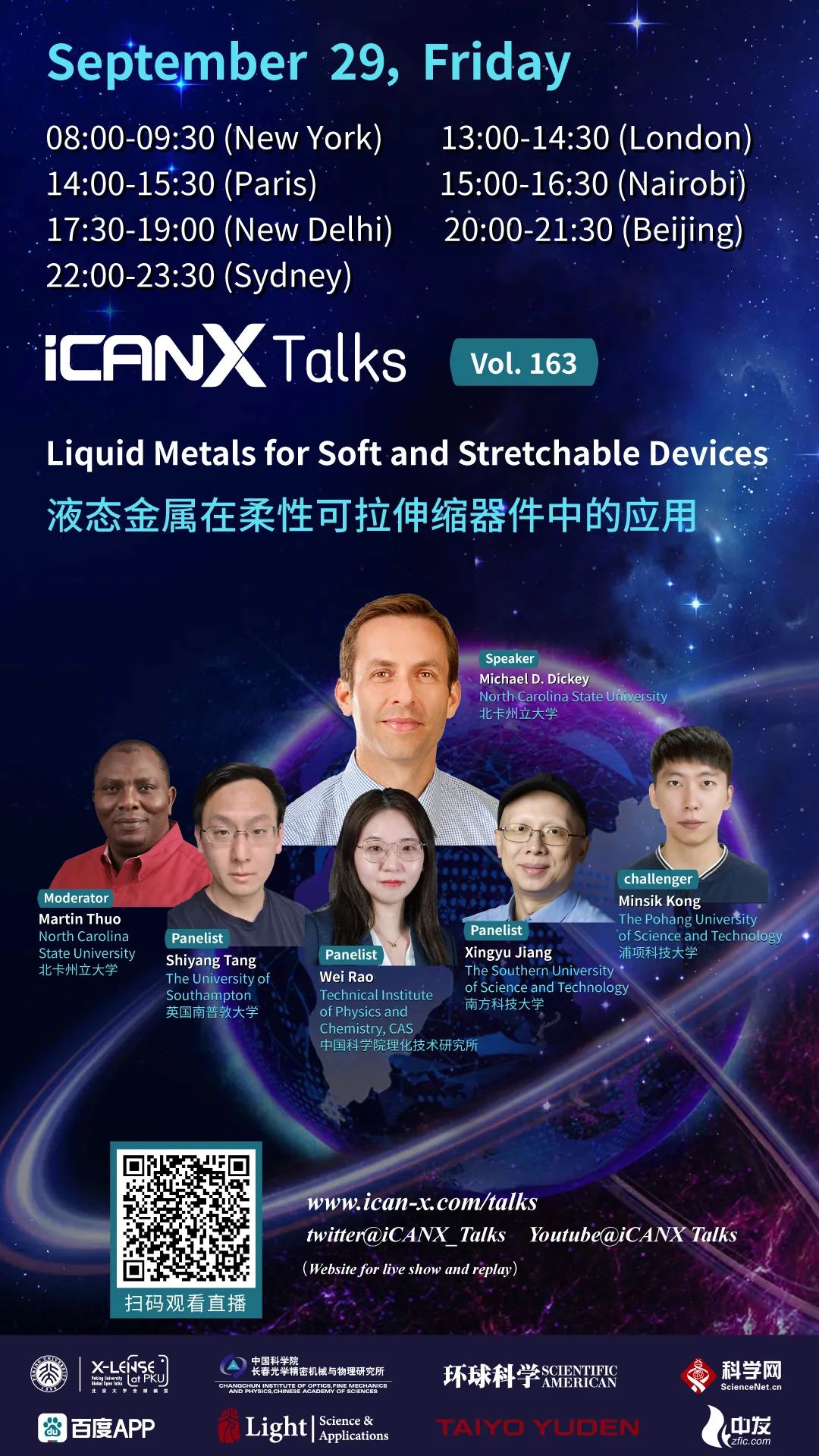Speaker: Michael D. Dickey, North Carolina State University
Time: 20:00-21:30 p.m., September 29, 2023, GMT+8
Venue: Scan the QR code to watch online
Abstract:
Liquid metals? Usually the term evokes thoughts of mercury (toxic!) or the Terminator (a villain!). Yet, gallium-based liquid metals are often overlooked despite their remarkable properties: melting points below room temperature, water-like viscosity, low-toxicity, and effectively zero vapor pressure (they do not evaporate). They also have, by far, the largest interfacial tension of any liquid at room temperature. Normally small volumes of liquids with large tension form spherical or hemi-spherical structures to minimize surface energy. Yet, these liquid metals can be patterned into non-spherical shapes (cones, wires, antennas) due to a thin, oxide skin that forms rapidly on its surface. This talk will describe efforts in our research group to harness this oxide to pattern and manipulate metal into useful shapes—such as circuits and particles—that are useful for applications that call for soft and deformable metallic features. Because it is a liquid, it is possible to pattern the metal in unique ways, such as injection or direct-write 3D printing at room temperature to form ultra-stretchable wires, self-healing circuits, and soft logic devices (the latter of which perform logic without semiconductors). Perhaps the most fascinating aspect of liquid metals it the ability to use interfacial electrochemistry chemistry to remove / deposit the oxide to manipulate the surface tension of the metal over unprecedented ranges (from the largest tension of any known liquid to near zero!). This allows manipulating the shape and position of the metal for shape reconfigurable devices. This work has implications for soft and stretchable electronics; that is, devices with desirable mechanical properties for human-machine interfacing, soft robotics, and wearable electronics.
Biography:
Michael Dickey is the Camille and Henry Dreyfus Professor in the Department of Chemical & Biomolecular Engineering at NC State University. He received a BS in Chemical Engineering from Georgia Institute of Technology (1999) and a PhD from the University of Texas (2006) under the guidance of Professor Grant Willson. From 2006-2008 he was a post-doctoral fellow in the lab of Professor George Whitesides at Harvard University. He completed a sabbatical at Microsoft in 2016 and EPFL in 2023. Michael’s research interests include soft matter (liquid metals, gels, polymers) for soft and stretchable devices (electronics, energy harvesters, textiles, and soft robotics).
Source: iCANX
